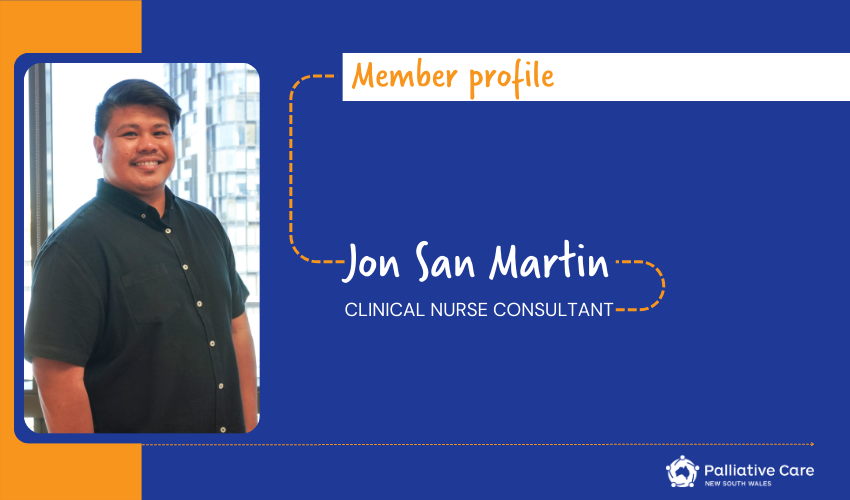Jon San Martin is a valued member of PCNSW and is a registered nurse with clinical experience working in residential aged care and a palliative care unit. He has been involved in the development of practical, evidence-based resources for The Advance Project, a national palliative care project led by HammondCare in partnership with CareSearch. Most recently, Jon joined a community palliative care service and is learning a lot in this new role. We are delighted that he has chosen to share his insights and thoughts as our very first member to be profiled in 2024.
“Much like the maestro, working as a community palliative care clinician requires a great deal of knowledge and competence about the musical piece they are playing (a person with a life-limiting illness)”
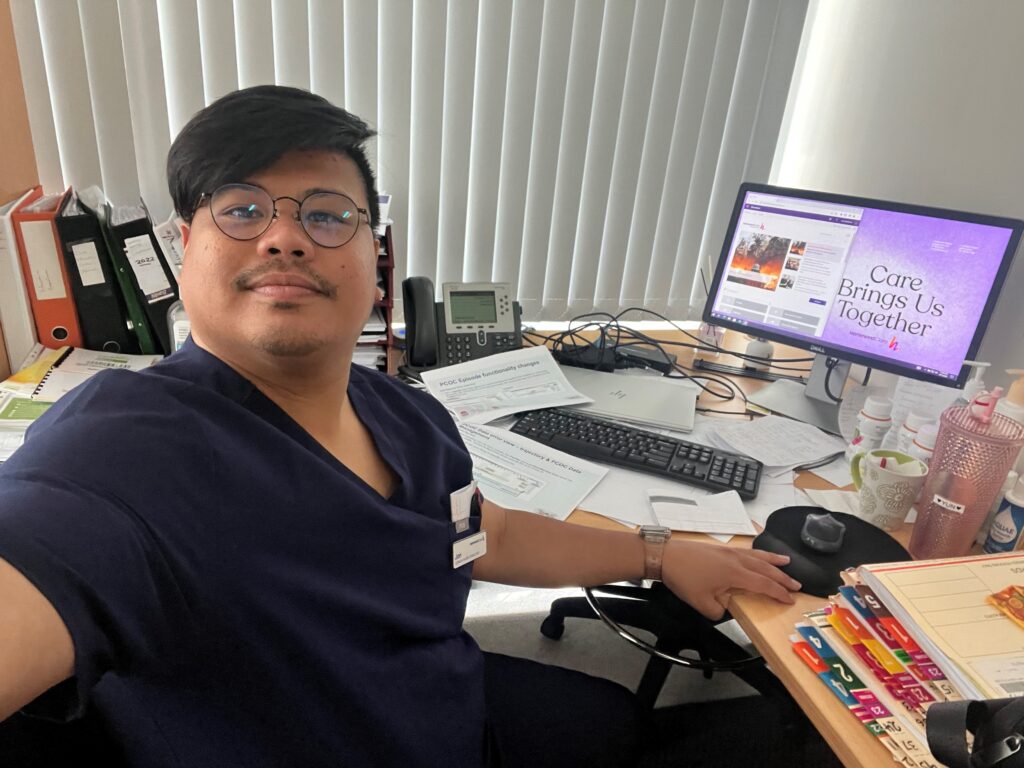
What are the important components of your role in the position that you have?
As I transitioned into my new role as a community palliative care nurse, I reflected on the analogy for working in a community palliative care service. I think it has many similarities to a maestro or conductor in an orchestra. Much like the maestro, working as a community palliative care clinician requires a great deal of knowledge and competence about the musical piece they are playing (a person with a life-limiting illness). Also, an in-depth understanding of the ensemble of musicians (members of the multidisciplinary team and other support services) and the unique instruments and melodies they play (various roles, responsibilities, and scope of the support available), all working in harmony and synchronously guided by the music sheet (person’s wishes and preferences and goals of care). Working together to deliver a heartfelt musical masterpiece that brings many different emotions to the audience and musicians alike. Similarly, working in palliative care is best done with an ensemble of people working together to achieve the best care that aligns with the person’s wishes, values, and goals and supports their families/friends.
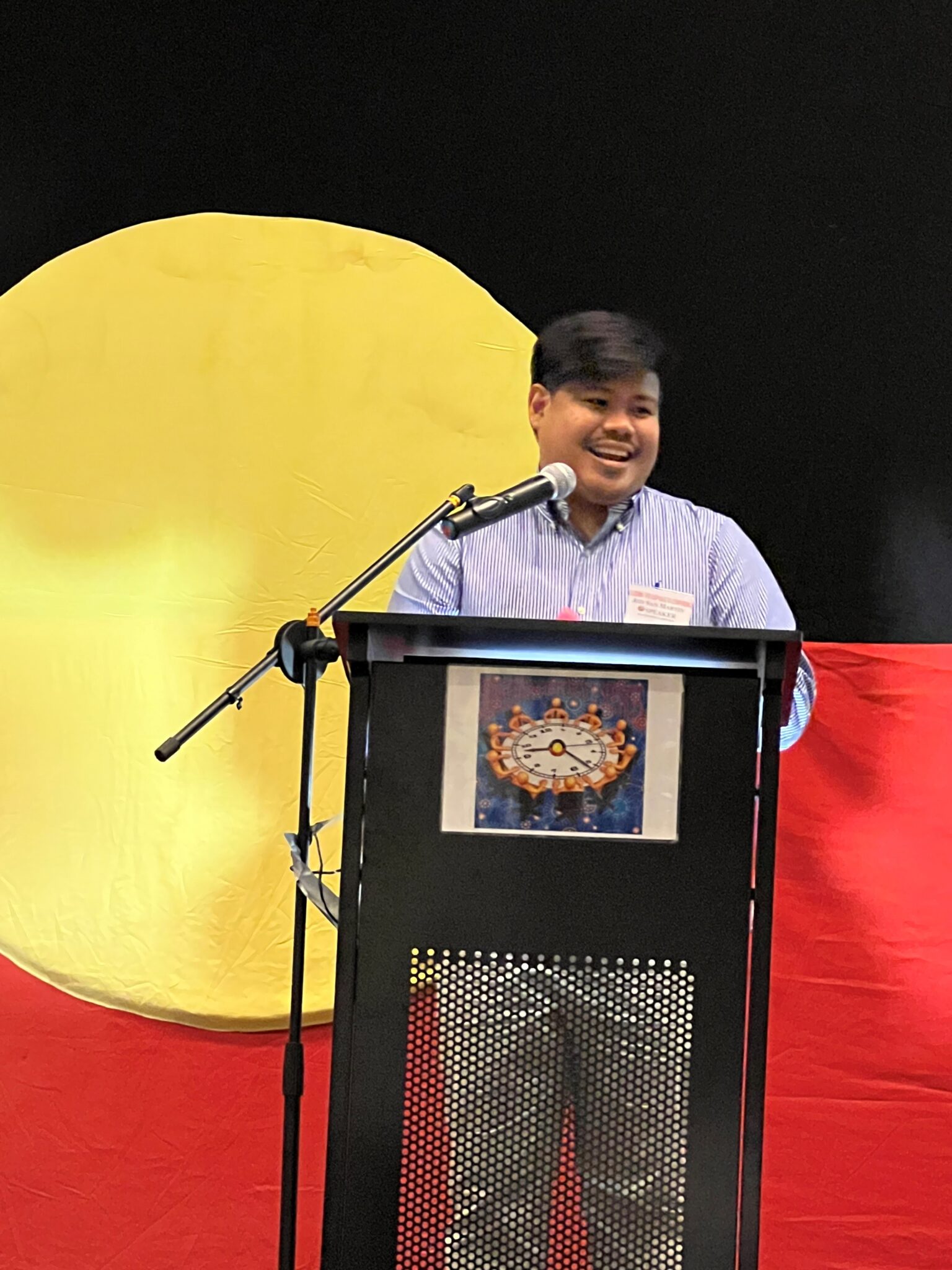
“Being self-aware of our thoughts and emotions can make a huge difference in effectively communicating with the people we care about.”
What personal or professional skills are important for you to be able to do your job well?
Self-awareness would be an attribute I strive to improve upon and will continue to do so. Effective communication is vital in the relationships we have both in our personal and professional lives. Often, we work in an emotionally charged environment as palliative care clinicians, which could have an impact on our emotional well-being. Being self-aware of our thoughts and emotions can make a huge difference in effectively communicating with the people we care about.
What’s the best part of what you do?
It’s the undeniable humanness feeling of helping others, caring for each other and being part of a community. It’s the interactions I have and the relationships formed in the process with the people I serve. The opportunity of getting to know the person and be trusted to share a moment in their journey despite them feeling most vulnerable.
What do you find the most challenging?
People have different perceptions of what palliative care is and often the prejudice they have about palliative care that limits our ability to reach people who may benefit from it and provide support.
What do you think are the opportunities for Palliative Care in the next 2 – 3 years?
The advancement in health technology and artificial intelligence and its application to support individuals, communities and health professionals to work more effectively and collaboratively to achieve the best possible outcomes for people who need palliative care.
Also, a public health approach to palliative care where there is growth in community-led initiatives to help the members of the general public have conversations about their health and end-of-life care, increasing the community’s health and death literacy.
What do you think are the biggest challenges for the sector in the next 2 – 3 years?
I anticipate that workforce challenges will continue to be an issue in the coming years, as we experience now. Emphasising the need to equip all health professionals across all settings to have the capability to deliver palliative care and increase timely access to care whenever and wherever palliative care is required. Better integration of palliative care in the undergraduate and vocational courses curriculum for frontline health professionals and leveraging partnership with state, federal and service providers to deliver palliative care in underserved communities.
“I have been privileged to be surrounded by generous people willing to share their time providing mentorship and guidance. I continue to aspire to and trial variations of this ratio in my career.”
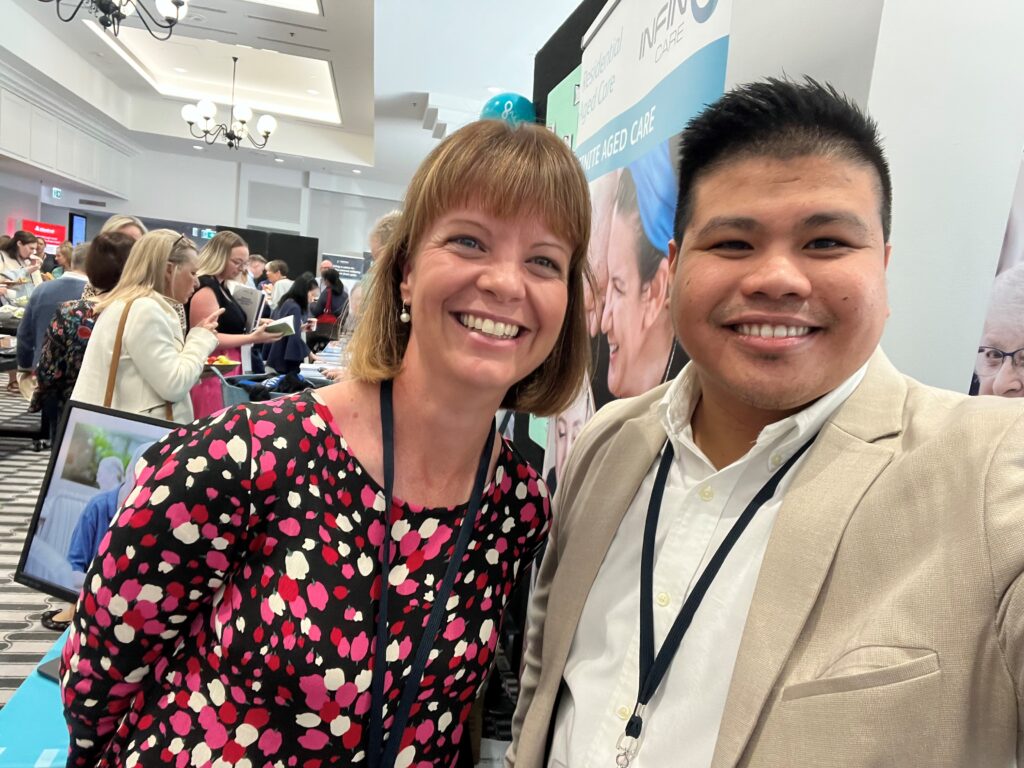
What’s the best piece of advice you’ve ever been given?
I have been privileged to be surrounded by generous people willing to share their time providing mentorship and guidance. I continue to aspire to and trial variations of this ratio in my career. In a presentation by Prof David Currow that I attended, he mentioned allocating time as a clinician to do 30% research, 30% education and 40% clinical practice. I am not confident I remember what he said accurately, but I am trying to incorporate all three in my professional development.
What does the perfect day off look like for you?
I guess a perfect day can take many forms, and one of them could be from getting a sense of accomplishment from ticking all the items on my daily to-do list!
Jon is the the recipient of the 2023 Australian Nurses Memorial Centre (ANMC) Scholarship. We would like to congratulate Jon on the completion of his Master of Palliative Care at University of Technology Sydney.
How have scholarships contributed to your career development?
The scholarships I received motivated me to put my best foot forward and to make the most of the opportunity I received to enhance my knowledge and expertise in the topic I feel most passionate about. I am honoured and privileged to have received the Aged Care Scholarship funded by the Department of Health and Aged Care, administered by the Australian College of Nursing (ACN), and a scholarship from the Australian Nurses Memorial Centre (ANMC).
Where did you find scholarship information and how hard was the application process?
I found out the scholarship information on one of the mailing lists.
The application process for both scholarships was seamless and not too onerous. The questions on the application form help clarify my thinking as to why I chose to do the Master of Palliative Care and get a clear picture of my motivations and plans for the future.
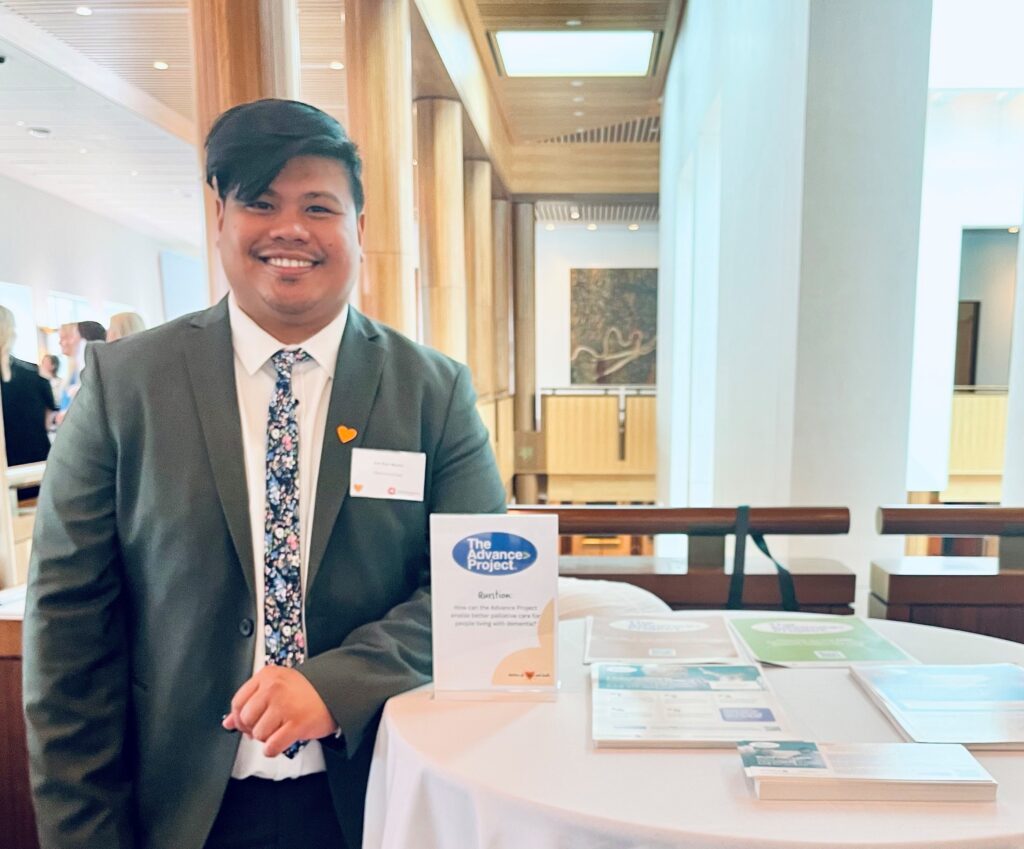
“I find it a true privilege doing what I do and it gives me so much fulfilment in my role to be trusted and allowed to share such a space and be involved in what could be one of their most vulnerable times.”


